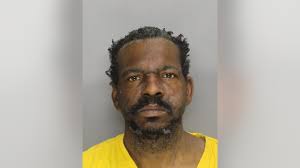317 Security Officers Arrested For Police Impersonation
Charlotte NC
Each year, about 400 persons employed in the private security industry are arrested for criminal impersonation of a law enforcement officer.
That number in 2017 and 2018 has risen by more than 31% with arrests so far, this year reaching 317 known arrests as of Tuesday August 21st.
While most arrests occur while the person is not working, some charges have arisen out of the uniformed security officer misidentifying their position or authority while on duty.
In 2017, 43 of the 439-arrested stated that they were trying to “impress” someone such as a girlfriend, parent or personal friend. Police say that 64 security officers identified themselves as a law enforcement officer during a traffic stop and 29 security officers identified themselves as a police officer while they were engaged in other criminal activity.
Arrests of security officers made during the past eighteen months were not based on their security uniform, worn clothing or other appearance or a misidentification by a citizen. Most arrests were made based on verbalization by the arrestee that they were a law enforcement officer or through their actions such as operating unauthorized emergency lights and sirens in private vehicles, conducting traffic stops on public roads and presenting themselves as a police officer.
Three areas of private security may be leading to the increased misrepresentation:
Overlap of Duties: Private security officers no longer acts as mere observe and report or access control agents and are frequently given the authority to detain suspicious persons, shoplifters, and other persons committing crimes on private property.
Overlap of Authority: All but six states allow “private persons” to make “citizen” or private person arrests for either misdemeanor or felony crimes committed in the presence of the citizen.
In some states including South Carolina, Tennessee and Virginia, security officers are identified in the law as the “arresting” officer and South Carolina law gives private security “deputy sheriff” authority while engaged in their duties on “private” property. But that in no way allows the security officer to identify themselves as a “deputy sheriff” nor conveys that they are a law enforcement officer.
There are also close to thirty states that do allow private security officers to complete additional training to become “special police” “peace officers” “deputy constables” and “private police”.
Recruitment, Training and Supervision: Any private security contractor or private business employing proprietary security agents who allows their employees to make detentions, conduct traffic stops or sign criminal warrants as the “affiant” must make clear to the security officer that they are not a sworn officer and has no more authority than any other private person. Further, it is incumbent on the company to have written policies that clearly spells out the duties of the security officer as they pertain to making private person arrests.
And on a final note, with the increase use of law enforcement style uniforms, marked patrol cars and equipment including body cameras, it is easy to assume that many people do believe that the person wearing that uniform or driving those vehicles are indeed law enforcement.
It is important when making citizen contacts that we do not imply, verbally or via other means, that we are law enforcement unless, as in numerous states, the security employee is a commissioned or duly sworn law enforcement officer.
Overwhelmingly, private security officers today are doing a heck of a job both protecting their client and curbing the rise in crime nationwide and we need to ensure that there are clear lines of their duties and authority.
General Statute For Impersonating a Law Enforcement Officer:
Any person who is not a commissioned law enforcement but who verbalizes to another or willfully wears, exhibits, or uses the authorized uniform, insignia, emblem, device, label, certificate, card, or writing, of a peace officer, with the intent of fraudulently impersonating a peace officer, or of fraudulently inducing the belief that he or she is a peace officer is guilty of a gross misdemeanor.




